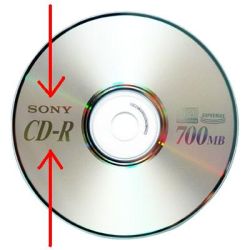Copying Is Stealing, Says Sony BMG

ArsTechnica quoted this exchange between Jennifer Pariser, head of litigation for Sony BMG, and Richard Gabriel, lead counsel for the plaintiffs:
Gabriel asked if it was wrong for consumers to make copies of music which they have purchased, even just one copy. Pariser replied, "When an individual makes a copy of a song for himself, I suppose we can say he stole a song." Making "a copy" of a purchased song is just "a nice way of saying 'steals just one copy'," she said.How interesting to learn from Sony BMG's attorney that using your Sony Vaio to burn your own Sony BMG CD onto a Sony CD-R blank makes you a thief.
This is a faint but discernible echo of a sentiment aired by the RIAA, MPAA, and other copyright-holder groups in 2006 deliberations connected with the Digital Millenium Copyright Act: Fair-use advocates, they say, "provide no arguments or legal authority that making back-up copies of CDs is a non-infringing use.... Even if CDs do become damaged, replacements are readily available at affordable prices."
Yet when I interviewed Cary Sherman, the president of the RIAA, and specifically brought up both burning and ripping of user-purchased material, I received this response:
The record companies are the most flexible and permissive copyright industry. Think about it--can you make a copy of a videogame, DVD or any other software? No. But you can burn copies of CDs for personal use, move music from CDs to iPods, and make multiple copies of songs downloaded from iTunes. We want consumers to have an enjoyable experience with their music, and that's why we have never objected to a music buyer making copies for personal use.Of course, there's a world of difference between burning/ripping material you own for your own use and sharing copyrighted material with countless strangers via P2P, as the defendant was charged with doing. But when it comes to even the more benign forms of copying--the kind widely agreed to constitute fair use--the music industry still hasn't gotten its story straight.
Thomas was initially accused of sharing more than 1700 songs via Kazaa under the username "tereastarr." The RIAA eventually focused on 24 of them, extracting $9250 in statutory damages for each song, for a total judgment of $220,000. This was among the few suits among 30,000 filed by the RIAA's member companies to come to trial. The plaintiffs were Sony BMG, Arista, Interscope, UMG, Capitol, and Warner Bros., Virgin having dropped out before the trial began.
- Log in or register to post comments





























































